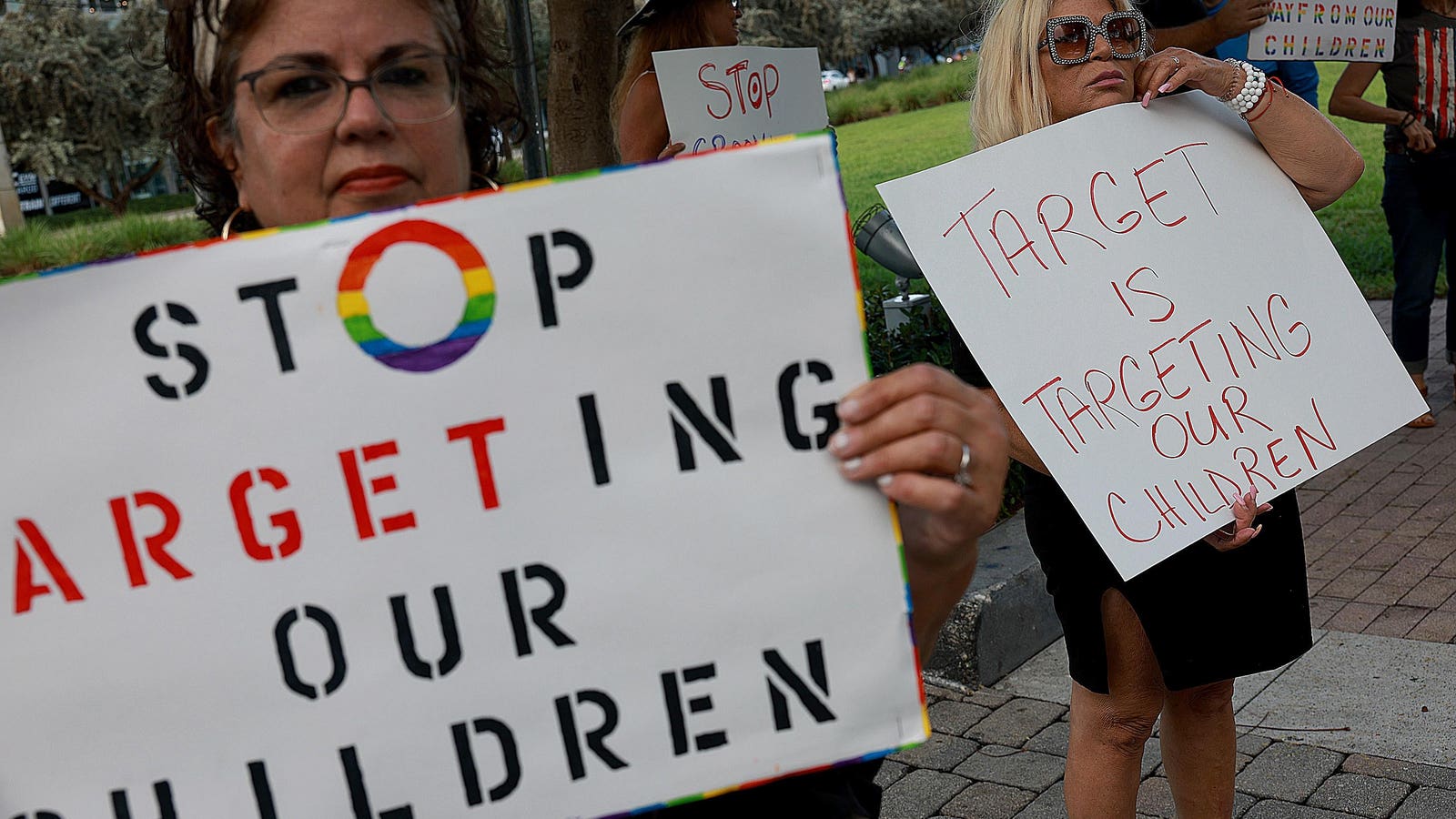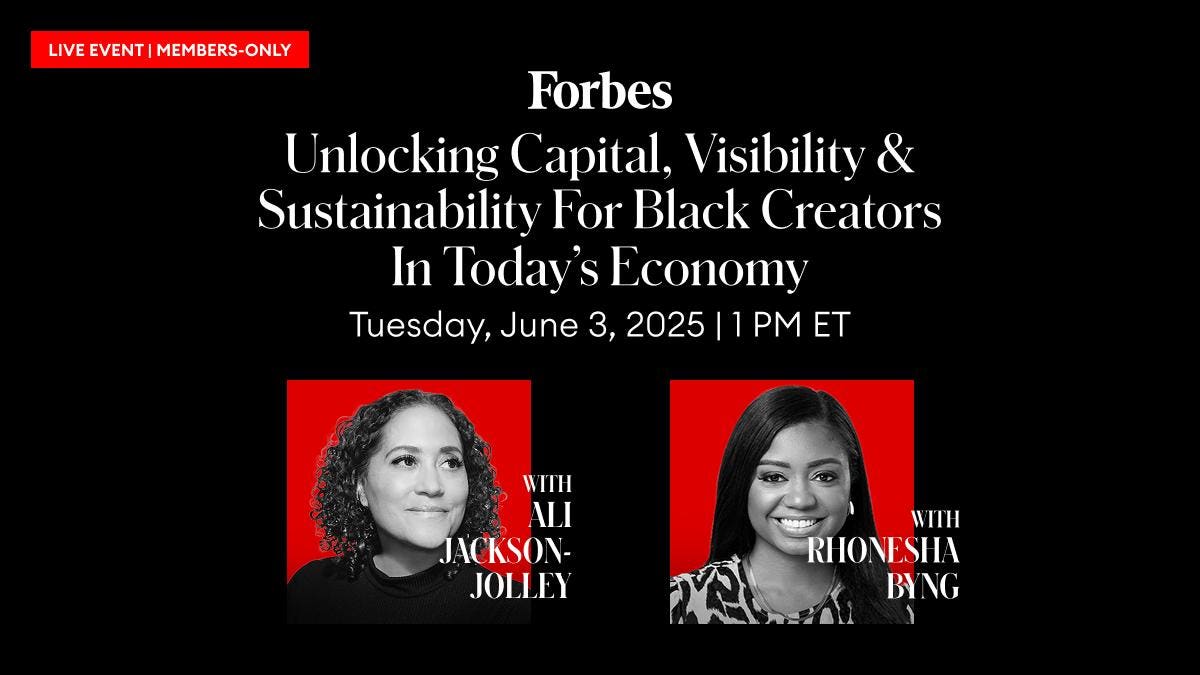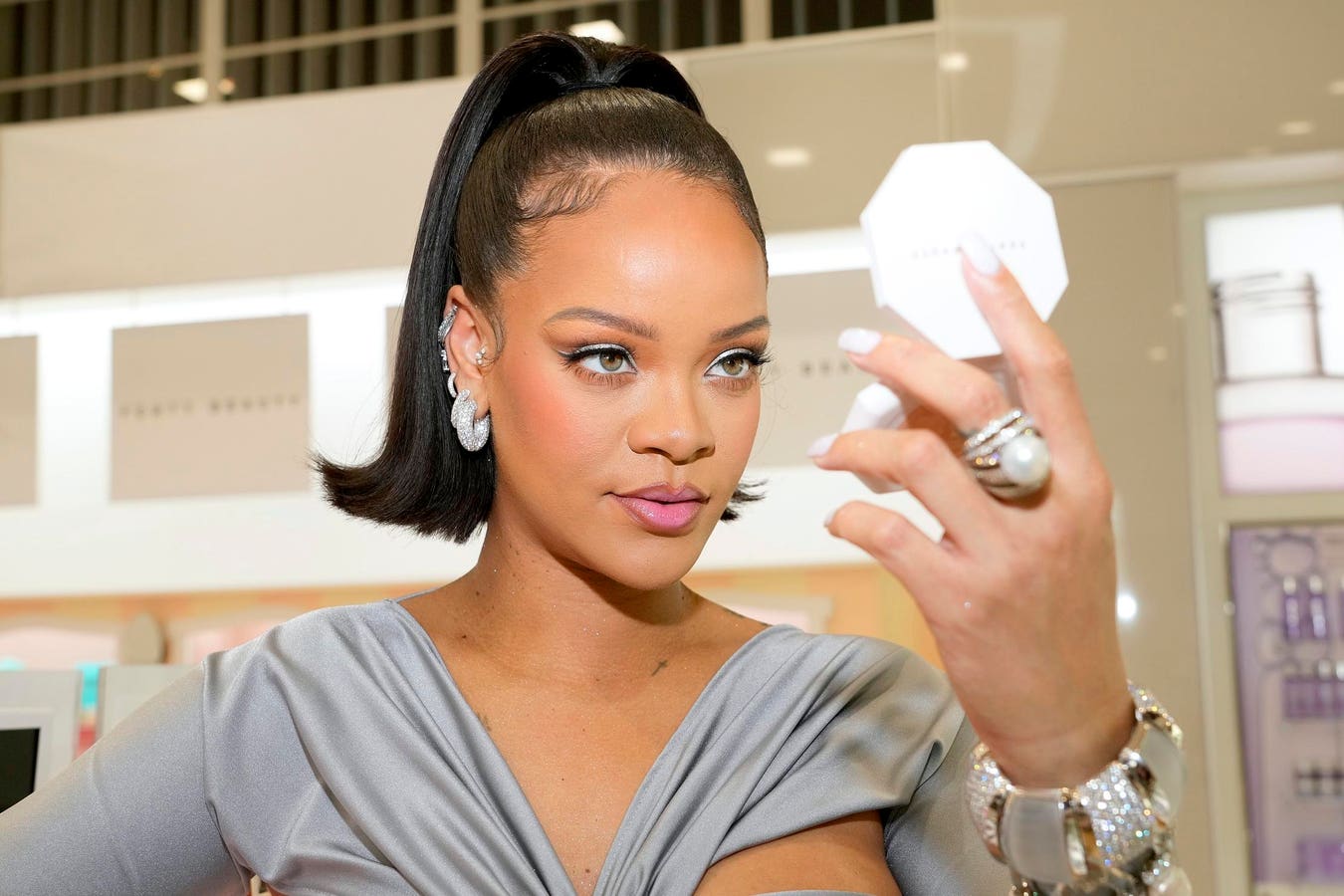Diversity and Inclusion (DEIA)
Target Hit with Shareholder Lawsuit Over DEI Risks

Top News
Target Corporation, CEO Brian Cornell and current and former board members have been sued for allegedly defrauding stockholders about the risks of its corporate diversity, equity, and inclusion policies, according to Reuters.
Key Facts
- A class action lawsuit has been filed on behalf of the City of Riviera Beach Police Pension Fund, claiming Target defrauded investors by issuing “false and misleading” statements concerning actions supporting the company’s diversity, equity, and inclusion mandates.
- The suit alleges that by failing to warn investors of ESG/DEI risks, its stock price was “artificially inflated” and board members secured re-election, “causing additional damages.”
- The suit covers those who acquired Target common stock between August 26, 2022, and November 19, 2024.
- Law firm Grant & Eisenhofer represents the class action members in the suit filed on January 31 in the U.S. District Court for the Middle District of Florida, Fort Meyers Division.
Background
The lawsuit cites consumer backlash from Target’s May 2023 LGBT-Pride Campaign, which caused some customers to boycott the company and shop at rivals, such as Walmart, whose results stood in “stark contrast” to Target’s. The boycott caused Target’s stock price to drop immediately and continue on a rocky course throughout 2024. The suit alleges Target defrauded investors by hiding the customer backlash and not advising them of the risks to earnings from DEI policies. In effect, the plaintiffs claim Target misused “investor funds to serve political and social goals.”
Related Suit
In August 2023, America First Legal, founded by Stephen Miller and now a Trump administration policy advisor, brought a similar suit on behalf of shareholder Brian Craig in the same U.S. Middle District of Florida court. Also alleging losses due to the company’s Pride Month 2023 campaign, Target filed back seeking to dismiss the suit, claiming it had effectively warned investors about potential customer backlash. It also requested a change of venue to Minnesota. This past December, the presiding judge ruled there was sufficient information to pursue claims against Target and refused to grant the venue change request.
Contra
Following Target’s January 24 announcement that it was evolving its Belonging initiative by “concluding its three-year diversity, equity, and inclusion goals,” civil rights leaders called for a Target boycott beginning on February 1 in conjunction with Black History Month. In a rally outside the company’s Minneapolis headquarters, civil rights attorney and founder of the Racial Justice Network, Nekima Levy Armstrong said Target acted “cowardly” by “bowing to the Trump administration” and retreating from support of racial equity. Organizers called on supporters to patronize Costco instead, since it has reaffirmed its support of DEI.
Tangent
After the National Center for Public Policy Research submitted a proxy proposal to assess the company’s “litigation, reputational, and financial risks” surrounding DEI, Costco shareholders voted almost unanimously in support of Costco’s current DEI initiatives at the company’s January shareholder meeting. Executive director of the NCPPR’s Free Enterprise Project, Stefan Padfield, shared in a statement that his organization warned Target of its DEI risks in 2024 and followed by warning Costco of the risks in the proxy proposal. “Now Target is getting sued and Costco is getting letters from state attorneys general,” Padfield is referring to a January 30 letter to Costco CEO Ron Vacharis from 19 AGs requesting Costco notify them within 30 days whether the company has repealed its DEI policies or explain why it has failed to do so.
Further Reading
- Grant & Eisenhofer Files Class Action Lawsuit Against Target Corporation On Behalf Of Pension Fund (Businesswire, 1/31/2025)
- After Target backs Away From Diversity Programs, Civil Rights Activists Call For A Boycott (PBS, 1/31/2025)
- Target Is Sued For Defrauding Shareholders About DEI (Reuters, 2/3/2025)
Conclusion
The lawsuit against Target Corporation and its CEO Brian Cornell and current and former board members is a significant development in the ongoing debate surrounding corporate diversity, equity, and inclusion policies. The suit alleges that Target defrauded investors by issuing false and misleading statements about its DEI initiatives and failing to warn investors of the risks to earnings from these policies. The outcome of this lawsuit will be closely watched by investors and corporate boards across the country.
FAQs
- What is the lawsuit about?
The lawsuit is about whether Target Corporation and its CEO Brian Cornell and current and former board members defrauded investors by issuing false and misleading statements about its diversity, equity, and inclusion policies. - Who filed the lawsuit?
The lawsuit was filed on behalf of the City of Riviera Beach Police Pension Fund by law firm Grant & Eisenhofer. - What are the allegations in the lawsuit?
The lawsuit alleges that Target defrauded investors by issuing false and misleading statements about its DEI initiatives and failing to warn investors of the risks to earnings from these policies. - What is the outcome of the lawsuit?
The outcome of the lawsuit is pending.
Diversity and Inclusion (DEIA)
Empowering Black Creators

Introduction to Unlocking Capital
The current economic landscape presents numerous challenges for Black creators, who often face significant barriers when attempting to access capital, visibility, and sustainability. These obstacles can hinder their ability to bring innovative ideas to life, grow their businesses, and achieve long-term success. However, there are ways to overcome these challenges and unlock the full potential of Black creators.
Understanding the Challenges
Black creators face a unique set of challenges in today’s economy. One of the primary obstacles is accessing capital, as they often lack the financial resources and networks needed to secure funding. Additionally, they may struggle to gain visibility for their work, making it difficult to attract new customers, partners, and investors. Sustainability is also a major concern, as Black creators must navigate complex systems and structures that can make it hard to maintain their businesses over time.
The Importance of Access to Capital
Access to capital is essential for Black creators, as it allows them to invest in their businesses, hire staff, and develop new products and services. However, many Black creators face significant barriers when attempting to secure funding, including limited access to traditional financing options and a lack of representation in venture capital firms. To address this issue, alternative funding models, such as crowdfunding and community-based investing, can provide critical support.
Building Visibility and Networks
Building visibility and networks is also crucial for Black creators, as it enables them to showcase their work, connect with potential customers and partners, and access new opportunities. Social media platforms, online communities, and industry events can provide valuable channels for promoting their work and expanding their professional networks. Moreover, collaborations and partnerships with other creators, businesses, and organizations can help amplify their voices and increase their visibility.
Strategies for Achieving Sustainability
To achieve sustainability, Black creators must develop strategies that enable them to maintain their businesses over time. This can involve diversifying their revenue streams, building strong relationships with customers and partners, and continuously innovating and adapting to changing market conditions. Additionally, accessing resources such as mentorship programs, business training, and networking events can provide critical support and help them navigate complex systems and structures.
Empowering Black Creators
Empowering Black creators requires a multifaceted approach that addresses the unique challenges they face. This can involve providing access to funding, mentorship, and networking opportunities, as well as promoting diversity, equity, and inclusion within the broader economic system. By taking these steps, we can help unlock the full potential of Black creators and support their efforts to build successful, sustainable businesses.
The Role of Technology
Technology can play a critical role in empowering Black creators, as it provides a range of tools and platforms that can help them access new markets, build their brands, and connect with customers and partners. Digital platforms, such as social media and e-commerce sites, can enable Black creators to showcase their work, sell their products and services, and build their professional networks. Additionally, technologies such as blockchain and cryptocurrency can provide new opportunities for secure, transparent, and community-driven funding models.
Policy and Advocacy
Policy and advocacy efforts are also essential for empowering Black creators, as they can help address systemic barriers and promote diversity, equity, and inclusion within the broader economic system. This can involve advocating for policies that support access to capital, promote diversity and inclusion, and provide resources and support for Black creators. By working together to advance these efforts, we can help create a more equitable and just economy that supports the success and sustainability of Black creators.
Conclusion
Unlocking capital, visibility, and sustainability for Black creators is a critical step towards building a more equitable and just economy. By understanding the unique challenges they face and developing strategies to address these obstacles, we can help empower Black creators and support their efforts to build successful, sustainable businesses. Through a combination of alternative funding models, digital platforms, policy and advocacy efforts, and community-driven initiatives, we can work towards a future where Black creators have the resources and support they need to thrive.
FAQs
Q: What are some of the primary challenges faced by Black creators in today’s economy?
A: Black creators face a range of challenges, including limited access to capital, lack of visibility, and difficulty achieving sustainability.
Q: How can alternative funding models support Black creators?
A: Alternative funding models, such as crowdfunding and community-based investing, can provide critical support for Black creators by offering new channels for accessing capital.
Q: What role can technology play in empowering Black creators?
A: Technology can provide a range of tools and platforms that help Black creators access new markets, build their brands, and connect with customers and partners.
Q: Why is policy and advocacy important for empowering Black creators?
A: Policy and advocacy efforts can help address systemic barriers and promote diversity, equity, and inclusion within the broader economic system, supporting the success and sustainability of Black creators.
Q: How can we work towards a more equitable and just economy that supports Black creators?
A: By developing and implementing strategies that address the unique challenges faced by Black creators, we can work towards a more equitable and just economy that supports their success and sustainability.
Diversity and Inclusion (DEIA)
Viral Clip Gets Right About Black Women And Repression

The History and Ongoing Reality of Reproductive Oppression of Black Women
The recent resurgence of a clip from Netflix’s #blackAF, featuring Rashida Jones’ character discussing the historical exploitation of Black women’s bodies for reproductive purposes, has sparked a heated debate. The monologue, which mentions that Black women were brought to America "to breed babies," has been criticized for its historical accuracy. However, historians acknowledge that enslaved Black women were indeed subjected to forced reproductive labor, a practice now recognized as reproductive oppression.
Enslavement and Reproductive Exploitation
During the period of slavery in the United States, enslaved Black women were forcibly impregnated and exploited for their reproductive labor. This was a critical component of the slave breeding industry, driven by the financial need for slave labor and the dehumanization of enslaved people. The regulation, exploitation, and monetization of individuals’ sexuality, labor, bodies, and procreative abilities to exercise control over individuals and communities, particularly those who are marginalized, is now referred to as reproductive oppression.
The Slave Breeding System
The sexual and reproductive exploitation of enslaved Black women was a direct result of their dehumanization and the denial of their fundamental rights as individuals. Enslavers encouraged and sometimes forced sexual relations between enslaved individuals to increase their holdings and ultimately, the profitability of enslaved people. Black women’s bodies were seen as a source of profit, and their reproductive capabilities were valued for the production of new enslaved people.
Ongoing Reproductive Oppression
Reproductive oppression did not stop after the emancipation of enslaved Black Americans. It has been the foundation of eugenics legislation that forcibly sterilized marginalized communities. Other examples of reproductive oppression include limiting access to contraception, discriminatory healthcare practices and bias, and mass incarceration, which currently impacts reproductive health and rights. Incarcerated women often face barriers to accessing reproductive healthcare and discrimination.
Recent Examples of Reproductive Oppression
A more recent example of reproductive oppression can be seen in the case of Adriana Smith, a 30-year-old nurse and mother who was declared brain-dead after suffering a medical emergency. At the time, Smith was nine weeks pregnant. Despite being declared brain dead, Emory University Hospital is keeping Smith’s organs functioning on life support until the fetus can be delivered due to Georgia’s law banning most abortions after fetal cardiac activity is detected or about six weeks into pregnancy. Smith is currently 22 weeks pregnant and has been on life support for more than 90 days. This has been a heart-wrenching and excruciating experience for Smith’s family, who simply wants the choice to act on Smith’s behalf in a way that they feel their loved one would have wanted.
Conclusion
The history and ongoing reality of reproductive oppression of Black women are complex and deeply rooted in the dehumanization and exploitation of enslaved people. As the current socio-political climate continues to change in the U.S., some fear the future of reproductive rights and the possibility of reproductive oppression being exercised in more overt and harmful ways, such as how Black women have been treated in the country for centuries.
FAQs
Q: What is reproductive oppression?
A: Reproductive oppression refers to the regulation, exploitation, and monetization of individuals’ sexuality, labor, bodies, and procreative abilities to exercise control over individuals and communities, particularly those who are marginalized.
Q: How were enslaved Black women exploited during the period of slavery in the United States?
A: Enslaved Black women were forcibly impregnated and exploited for their reproductive labor, which was a critical component of the slave breeding industry.
Q: Is reproductive oppression still a reality today?
A: Yes, reproductive oppression is still a reality today, with examples including limiting access to contraception, discriminatory healthcare practices and bias, and mass incarceration, which impacts reproductive health and rights.
Q: What is the current situation with Adriana Smith, and how does it relate to reproductive oppression?
A: Adriana Smith, a 30-year-old nurse and mother, was declared brain-dead after suffering a medical emergency while nine weeks pregnant. She is being kept on life support until the fetus can be delivered due to Georgia’s law banning most abortions after fetal cardiac activity is detected, highlighting the ongoing reality of reproductive oppression.
Diversity and Inclusion (DEIA)
Inclusive Marketing Isn’t Mandatory

Introduction to Inclusive Marketing
In recent years, several high-profile incidents have highlighted the importance of inclusive marketing. For instance, Vogue’s tribute to the iconic movie Hairspray, featuring model Gigi Hadid, was criticized for not including plus-sized individuals, who are a core part of the film. Similarly, Geno’s Steaks in Philadelphia faced backlash for posting a sign that said, "This is America. When ordering, please speak English." The Supreme Court’s ruling that a bakery in Denver could not be forced to create a wedding cake for a gay wedding also sparked controversy.
The Power to Choose
Brands have the power to choose who they want to serve and support. While there are laws such as the Americans With Disabilities Act and the Civil Rights Act of 1964, there are no laws that dictate what brands must do in terms of inclusivity. As a result, brands are not required to support Pride, offer larger sizes, or include people of color in their promotions or teams. Inclusive marketing is not a requirement or a mandate, and it doesn’t look like that will change in the near future.
The Business Case for Inclusive Marketing
However, inclusive marketing is just good marketing. Based on data, trends in the population, and consumer expectations, inclusive marketing is the future of marketing. When Fenty Beauty launched with 40 shades of makeup to accommodate people of different complexions, consumers proved with their wallets that this type of inclusion is what they wanted. The industry largely followed suit, making more shades available, because they saw that serving more consumers was needed to grow and stay relevant.
Consumer Response to Inclusive Marketing
Consumers are increasingly exercising their power to choose. Research shows that 82% of consumers want to buy from brands who share their values, and data shows that consumers are actively making choices to stop buying from brands who don’t share their values. Inclusion is an important value for many consumers, both for themselves and for others who are part of underrepresented and underserved communities. For instance, retailer Target has been under fire from consumers for scaling back its Pride merchandise and rolling back its commitments to diversity, equity, and inclusion. As a result, Target has seen declining sales, which they attribute to consumer boycotts.
The Impact of Exclusion
Choosing not to engage in inclusive marketing is a choice that brands have the right to make. However, brands also need to be prepared for groups of consumers to proactively choose to spend their money elsewhere as a result. Every day, consumers, particularly those from underrepresented and underserved communities, are choosing to spend their money with brands that are being intentional about serving them. For example, individuals with dietary restrictions, such as gluten-free diets, often choose to frequent restaurants that cater to their needs, demonstrating loyalty to brands that choose to serve them.
Conclusion
In conclusion, inclusive marketing is not a requirement, but it is a smart business decision. Brands have the power to choose who they want to serve, but consumers also have the power to choose where they want to spend their money. By choosing to engage in inclusive marketing, brands can tap into the growing demand for diversity and inclusion, and build loyalty with consumers who feel seen and valued.
FAQs
- Q: What is inclusive marketing?
A: Inclusive marketing refers to the practice of creating marketing campaigns and products that cater to diverse groups of people, including those with different racial and ethnic backgrounds, abilities, and identities. - Q: Why is inclusive marketing important?
A: Inclusive marketing is important because it allows brands to tap into the growing demand for diversity and inclusion, and build loyalty with consumers who feel seen and valued. - Q: Can brands be forced to engage in inclusive marketing?
A: No, brands cannot be forced to engage in inclusive marketing, but they can face backlash and declining sales if they choose not to. - Q: How can consumers promote inclusive marketing?
A: Consumers can promote inclusive marketing by choosing to spend their money with brands that prioritize diversity and inclusion, and by speaking out against brands that do not.
-

 Career Advice6 months ago
Career Advice6 months agoInterview with Dr. Kristy K. Taylor, WORxK Global News Magazine Founder
-

 Diversity and Inclusion (DEIA)6 months ago
Diversity and Inclusion (DEIA)6 months agoSarah Herrlinger Talks AirPods Pro Hearing Aid
-

 Career Advice6 months ago
Career Advice6 months agoNetWork Your Way to Success: Top Tips for Maximizing Your Professional Network
-

 Changemaker Interviews5 months ago
Changemaker Interviews5 months agoUnlocking Human Potential: Kim Groshek’s Journey to Transforming Leadership and Stress Resilience
-

 Diversity and Inclusion (DEIA)6 months ago
Diversity and Inclusion (DEIA)6 months agoThe Power of Belonging: Why Feeling Accepted Matters in the Workplace
-

 Global Trends and Politics6 months ago
Global Trends and Politics6 months agoHealth-care stocks fall after Warren PBM bill, Brian Thompson shooting
-

 Global Trends and Politics6 months ago
Global Trends and Politics6 months agoUnionization Goes Mainstream: How the Changing Workforce is Driving Demand for Collective Bargaining
-

 Training and Development6 months ago
Training and Development6 months agoLevel Up: How Upskilling Can Help You Stay Ahead of the Curve in a Rapidly Changing Industry





















